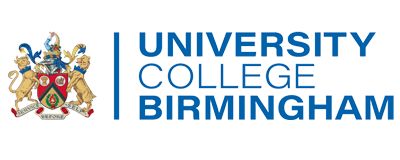Why is Australian education the best in the world, especially for Nepalese students?

The assertion that Australian education is the best in the world, especially for Nepalese students, is subjective and depends on various factors such as individual preferences, academic goals, career aspirations, and personal circumstances. However, there are several reasons why Australian education is considered highly attractive to Nepalese students:
- High-Quality Education: Australia is known for its high-quality education system, with many universities consistently ranking among the top in global rankings. Australian qualifications are recognized and respected worldwide, providing Nepalese students with a valuable credential.
- Wide Range of Programs: Australian universities offer a diverse range of academic programs across various fields of study, allowing Nepalese students to pursue their interests and career goals. Whether it’s engineering, business, healthcare, IT, arts, or sciences, there are ample opportunities for Nepalese students to find a program that suits their needs.
- Multicultural Environment: Australia is a multicultural country that welcomes people from diverse backgrounds, including Nepalese students. Studying in Australia provides Nepalese students with the opportunity to interact with students and faculty from around the world, fostering cross-cultural understanding and global perspectives.
- Work Opportunities: Australia offers generous work rights for international students, allowing them to work part-time during the academic year and full-time during scheduled breaks. This enables Nepalese students to gain valuable work experience, supplement their income, and offset living expenses while studying.
- Post-Study Work Opportunities: Upon graduation, Nepalese students may be eligible for post-study work visas that allow them to work in Australia temporarily. This provides an opportunity to gain professional experience in their field of study and potentially transition to permanent residency through skilled migration pathways.
- Quality of Life: Australia offers a high quality of life with a strong economy, modern infrastructure, excellent healthcare system, and beautiful natural environment. Cities like Sydney, Melbourne, Brisbane, and Perth consistently rank among the most livable cities in the world, offering a safe and comfortable environment for Nepalese students.
- Research Opportunities: Australian universities are known for their research excellence and innovation. Nepalese students have access to cutting-edge research facilities and opportunities to collaborate with leading researchers in their field of study.
- Support Services for International Students: Australian universities provide comprehensive support services for international students, including academic support, accommodation assistance, health services, counseling, and cultural integration programs. This ensures that Nepalese students feel supported and can thrive academically and socially.
Overall, the combination of high-quality education, diverse program offerings, ample work opportunities, and quality of life makes Australia an attractive destination for Nepalese students seeking an international education experience. However, it’s essential for Nepalese students to carefully research their options, consider their individual preferences and goals, and make informed decisions about studying abroad in Australia.
What are the popular courses available for Nepalese students in Australia?

Nepalese students in Australia have access to a diverse range of courses offered by Australian universities, colleges, and vocational education institutions. Some of the popular courses available for Nepalese students in Australia include:
- Business and Management: Courses in business administration, management, marketing, finance, and entrepreneurship are popular among Nepalese students. Australia’s strong business environment and diverse economy provide excellent opportunities for students to develop skills and pursue careers in various industries.
- Information Technology (IT): Australia is known for its thriving IT sector, and courses in computer science, software engineering, information systems, cybersecurity, and data science are in high demand. Nepalese students can gain practical skills and industry experience in Australia’s innovative tech industry.
- Engineering: Engineering programs in disciplines such as civil engineering, mechanical engineering, electrical engineering, and computer engineering are popular choices for Nepalese students. Australia’s world-class engineering schools offer cutting-edge research opportunities and practical training.
- Health Sciences: Courses in nursing, medicine, pharmacy, public health, physiotherapy, and allied health professions are highly regarded in Australia. Nepalese students can pursue rewarding careers in Australia’s healthcare system, which is known for its high-quality care and research opportunities.
- Hospitality and Tourism Management: Australia’s vibrant tourism industry attracts students interested in hospitality management, tourism operations, event management, and hotel administration. Nepalese students can gain practical experience in Australia’s world-renowned hospitality sector.
- Education: Education programs for aspiring teachers and educators are popular choices for Nepalese students. Courses in early childhood education, primary education, secondary education, and special education provide pathways to rewarding careers in Australia’s education system.
- Accounting and Finance: Accounting and finance courses are in high demand among Nepalese students seeking careers in finance, banking, auditing, and accounting firms. Australia’s strong financial sector offers ample job opportunities for graduates with expertise in accounting and finance.
- Environmental Sciences and Sustainability: Courses in environmental science, environmental management, sustainability studies, and renewable energy are increasingly popular among Nepalese students. Australia’s commitment to environmental conservation and sustainability makes it an attractive destination for studying environmental sciences.
- Creative Arts and Design: Australia’s creative arts and design programs attract students interested in fields such as graphic design, fashion design, interior design, animation, film production, and visual arts. Nepalese students can explore their artistic talents and gain industry experience in Australia’s dynamic creative industries.
- Law and Legal Studies: Law courses offer Nepalese students the opportunity to study Australian and international law, with specializations in areas such as commercial law, criminal law, human rights law, and international law. Australia’s legal system provides diverse career pathways for law graduates.
These are just a few examples of the popular courses available for Nepalese students in Australia. The country’s diverse educational offerings, world-class institutions, and welcoming environment make it an attractive destination for international students seeking quality education and global career opportunities.
In which cities in Australia, most of the Nepalese students found?

Nepalese students can be found in various cities across Australia, but some cities have larger populations of Nepalese students due to factors such as the presence of universities, job opportunities, and established Nepalese communities. While exact statistics on Nepalese student populations in each city may not be readily available, the following cities are known to have significant Nepalese student communities:
- Sydney, New South Wales: Sydney is Australia’s largest city and a major educational hub, hosting several prestigious universities and colleges. It attracts a large number of international students, including those from Nepal, due to its diverse academic offerings, vibrant cultural scene, and employment opportunities.
- Melbourne, Victoria: Melbourne is known for its world-class universities, multicultural atmosphere, and thriving arts and culture scene. It is a popular destination for international students, including Nepalese students, seeking high-quality education and diverse career opportunities.
- Brisbane, Queensland: Brisbane is the capital city of Queensland and home to several universities and educational institutions. It offers a relaxed lifestyle, subtropical climate, and proximity to popular tourist destinations. Nepalese students are attracted to Brisbane for its affordable cost of living and welcoming community.
- Adelaide, South Australia: Adelaide is known for its high-quality education, affordable living costs, and laid-back lifestyle. It is home to several universities and colleges offering a range of academic programs. Nepalese students appreciate Adelaide’s friendly atmosphere and strong support services for international students.
- Perth, Western Australia: Perth is the capital city of Western Australia and offers a high standard of living, beautiful natural surroundings, and excellent educational opportunities. Nepalese students are drawn to Perth for its quality education and opportunities in sectors such as mining, engineering, and healthcare.
- Canberra, Australian Capital Territory (ACT): Canberra is Australia’s capital city and home to several renowned universities and research institutions. It offers a unique blend of urban amenities, cultural attractions, and outdoor recreational activities. Nepalese students are attracted to Canberra for its quality education and opportunities in government and public service sectors.
These cities are known for their diverse educational offerings, multicultural communities, and quality of life, making them popular destinations for Nepalese students pursuing higher education in Australia. Additionally, Nepalese students may also be found in smaller cities and regional areas across Australia, depending on individual preferences and academic pursuits.
What are the eligible criteria for Nepalese students for abroad education in Australia in 2024?

As of 2024, the eligibility criteria for Nepalese students seeking to study in Australia may include the following:
- Academic Qualifications: Nepalese students must meet the academic requirements set by Australian educational institutions for the desired course of study. This typically involves providing transcripts and certificates to demonstrate previous academic achievements, such as completion of secondary school (for undergraduate programs) or a bachelor’s degree (for postgraduate programs).
- English Language Proficiency: Most Australian universities and colleges require international students, including those from Nepal, to demonstrate proficiency in English by achieving minimum scores on recognized English language proficiency tests such as the IELTS (International English Language Testing System) or TOEFL (Test of English as a Foreign Language). Some institutions may accept alternative tests or qualifications as proof of English proficiency.
- Acceptance into a Recognized Course: Nepalese students must receive an offer of admission from a registered Australian educational institution for a course of study that meets their academic and career goals. This offer of admission is typically provided in the form of a Confirmation of Enrollment (CoE) letter.
- Financial Capacity: Nepalese students must demonstrate that they have sufficient funds to cover tuition fees, living expenses, travel costs, and other related expenses for the duration of their studies in Australia. This may involve providing bank statements, scholarship awards, sponsorship letters, or other evidence of financial support.
- Health and Character Requirements: Nepalese students may need to meet certain health and character requirements to study in Australia. This may include undergoing a medical examination to demonstrate good health and obtaining a police clearance certificate or other documentation to demonstrate good character.
- Overseas Student Health Cover (OSHC): International students studying in Australia are required to maintain adequate health insurance coverage throughout their stay in the country. Nepalese students must purchase Overseas Student Health Cover (OSHC) from an approved provider to cover medical expenses while studying in Australia.
- Student Visa: Nepalese students intending to study in Australia for more than three months are required to obtain a student visa (subclass 500) from the Australian Department of Home Affairs. To apply for a student visa, students must provide their Confirmation of Enrollment (CoE) letter, proof of financial capacity, evidence of English proficiency, and other supporting documents as required.
- Genuine Temporary Entrant (GTE) Requirement: Nepalese students must satisfy the Genuine Temporary Entrant (GTE) requirement, which assesses whether the student’s intention to study in Australia is genuine and temporary. This involves providing a statement of purpose or personal statement explaining the student’s reasons for choosing Australia as a study destination and their intentions to comply with visa conditions.
It’s essential for Nepalese students to carefully review the specific requirements and procedures set by the Australian educational institution they wish to attend and the Australian government’s immigration guidelines to ensure that they meet all eligibility criteria and submit a complete application for study in Australia.
How to apply for Scholarship in Australia for Nepalese students?

Applying for scholarships in Australia as a Nepalese student involves several steps. Here’s a general guide on how to apply for scholarships:
- Research Scholarships: Start by researching scholarship opportunities available to international students studying in Australia. These scholarships may be offered by Australian universities, government organizations, non-profit organizations, private institutions, or international agencies. Websites like the Australia Awards, Study in Australia, and individual university websites are valuable resources for finding scholarships.
- Check Eligibility Criteria: Carefully review the eligibility criteria for each scholarship to ensure that you meet the requirements. Criteria may include academic merit, financial need, field of study, country of origin, and other factors. Some scholarships may also have specific eligibility requirements for Nepalese students.
- Prepare Required Documents: Gather all the necessary documents required for the scholarship application. This may include academic transcripts, letters of recommendation, a statement of purpose or personal essay, proof of English proficiency (such as IELTS or TOEFL scores), and any other supporting documents specified by the scholarship provider.
- Submit Applications: Complete and submit the scholarship applications by the specified deadlines. Pay close attention to the application instructions and ensure that all required documents are included. Some scholarships may have online application portals, while others may require submission by mail or email.
- Follow Up: After submitting your scholarship applications, monitor your email and other communication channels for updates or requests for additional information from the scholarship providers. Be prepared to respond promptly and provide any additional documentation if required.
- Prepare for Interviews (if applicable): Some scholarship programs may require applicants to participate in interviews as part of the selection process. If you are selected for an interview, prepare by practicing common interview questions and researching the scholarship provider and its objectives.
- Await Notification: Once you have submitted your scholarship applications and completed any required interviews, await notification regarding the status of your application. Scholarship providers typically inform applicants of their decision within a certain timeframe.
- Accept Scholarship Offers: If you are awarded a scholarship, carefully review the terms and conditions of the award, including any requirements or obligations you must fulfill as a scholarship recipient. Follow the instructions provided to accept the scholarship offer and complete any necessary paperwork.
- Apply for Student Visa (if applicable): If you are awarded a scholarship and plan to study in Australia for more than three months, you will need to obtain a student visa (subclass 500) from the Australian Department of Home Affairs. Follow the visa application process and ensure that you meet all requirements.
By following these steps and actively seeking out scholarship opportunities, Nepalese students can increase their chances of securing financial assistance to pursue their studies in Australia. It’s essential to start the scholarship search and application process well in advance of the intended study period to allow ample time for preparation and submission.
What are the employment opportunities for Nepalese students in Australia?

Nepalese students studying in Australia have access to a plethora of employment opportunities throughout their academic journey and beyond. Here’s a rundown of some of the avenues available:
Part-Time Jobs: With a valid student visa, Nepalese students can engage in part-time work, offering up to 40 hours per fortnight during academic sessions and full-time hours during scheduled breaks. Roles in retail, hospitality, customer service, administration, and tutoring are commonly sought after.
Internships and Work Placements: Australian universities and colleges frequently provide internship programs as part of their curriculum, enabling Nepalese students to gain hands-on experience in their chosen field, potentially leading to future employment.
Graduate Employment Programs: Many Australian companies offer structured graduate employment programs, facilitating recent graduates’ transition into full-time roles through training, mentorship, and practical experience.
Post-Study Work Visa: Graduates from Australian institutions may be eligible for the post-study work visa (subclass 485), granting them up to four years to work in Australia post-graduation, providing a valuable opportunity to gain work experience and explore career paths.
Skilled Migration Pathways: For Nepalese students looking to settle permanently in Australia, various skilled migration visas like the Skilled Independent visa (subclass 189) or Skilled Nominated visa (subclass 190) offer pathways based on qualifications and work experience in high-demand fields.
Entrepreneurship and Self-Employment: Australia’s conducive business environment and startup ecosystem offer Nepalese students opportunities for innovation and entrepreneurship, allowing them to explore self-employment and business ventures.
Seasonal Work: The agricultural sector in Australia requires seasonal workers for tasks like fruit picking and harvesting, providing Nepalese students with opportunities for temporary employment in rural areas during breaks or post-graduation.
Networking and Career Services: Nepalese students can benefit from networking events, career fairs, and support services provided by educational institutions and local organizations, aiding them in building professional connections and seeking career guidance.
In summary, Australia presents a diverse array of employment prospects for Nepalese students, encompassing part-time roles, internships, graduate programs, post-study work visas, skilled migration pathways, entrepreneurial ventures, seasonal work, and career development services. By leveraging these opportunities, Nepalese students can not only gain valuable work experience but also carve out successful careers in Australia.
What is the best time for Nepalese students to apply in the New Australia for higher education?

The optimal time for Nepalese students to apply for higher education in Australia depends on several factors, including academic timelines, visa processing times, and individual preferences. However, generally speaking, there are a few key considerations to keep in mind when planning to apply:
Application Deadlines: Australian universities typically have set application deadlines for each intake, which can vary depending on the institution and the specific course of study. It’s essential for Nepalese students to research and adhere to these deadlines to ensure their applications are considered for the desired intake.
Intake Dates: Australian universities generally have two main intakes each year: February/March (for the academic year beginning in Semester 1) and July/August (for the academic year beginning in Semester 2). Nepalese students should consider their preferred intake date based on their academic schedule, personal circumstances, and availability of courses.
Visa Processing Times: After receiving an offer of admission from an Australian educational institution, Nepalese students need to apply for a student visa, which can take several weeks to process. It’s crucial to allow sufficient time for visa processing, taking into account any additional documentation or requirements that may be necessary.
English Language Proficiency Tests: Many Australian universities require international students to demonstrate proficiency in English by providing scores from recognized English language tests such as the IELTS or TOEFL. Nepalese students should plan to take these tests well in advance of their application deadlines to ensure they meet the language requirements.
Scholarship Deadlines: If Nepalese students are planning to apply for scholarships to support their studies in Australia, they should research scholarship opportunities and note their application deadlines. Scholarship deadlines may differ from university application deadlines, so it’s essential to plan accordingly.
Preparation Time: Applying for higher education in Australia involves gathering necessary documents, preparing application materials (such as personal statements or letters of recommendation), and completing any required standardized tests. Nepalese students should allocate sufficient time for these tasks to ensure a well-prepared and competitive application.
In summary, the best time for Nepalese students to apply for higher education in Australia is typically several months before the intended intake date, taking into account application deadlines, visa processing times, English language proficiency tests, scholarship deadlines, and preparation time. By planning ahead and staying organized, Nepalese students can maximize their chances of a successful application and a smooth transition to studying in Australia.










